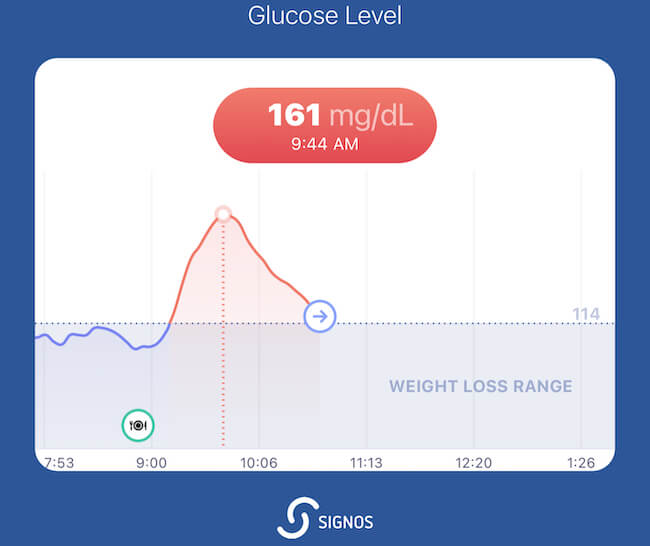Western diets are rich in processed foods, which contribute to metabolic problems and diseases and affect brain health and performance. According to the Centers for Disease Control and Prevention (CDC), almost 60% of the American diet comprises processed foods. Processed foods contain high calories, saturated fat, sugar, and salt, making them highly palatable and rewarding. Before you reach for processed foods, discover the relationship between processed foods, brain, and metabolic health.
{{mid-cta}}
What Are Processed and Ultra-Processed Foods?
The food becomes processed if an agricultural product undergoes processing methods such as heating, freezing, and juicing that alter its nature. Processed foods include fruit juices, canned vegetables with salt, fish, and refined grains.
Although processed foods are likely high in calories, sugar, saturated fat, and salt and may lack nutrients, not all processed foods are automatically unhealthy. For example, frozen fish is considered a processed food by definition. However, fish is often referred to as 'brain food' due to the benefits of omega-3 fatty acids on brain health.
On the other hand, ultra-processed foods are more manipulated than processed foods, and they are most likely to contain additives and are high in sugar, saturated fats, and salt. Ultra-processed foods include but are not limited to soft drinks, candies, cereals, chicken nuggets, fries, and fast foods.1
Consuming high amounts of calories, sugar, saturated fats, and salt is associated with health problems such as high blood sugar, cholesterol, and blood pressure.2 People with metabolic diseases have been shown to have a higher risk of mental and neurological diseases such as depression and dementia.3, 4
<p class="pro-tip"><strong>Learn More: </strong><a href="ultra-processed-foods">How Ultra-Processed Foods Affect Blood Sugar</a>.</p>
How Does Processed Food Impact Our Brain and Metabolic Health?

Nutrition impacts brain and metabolic health directly and indirectly by influencing many physiological and psychological mechanisms, such as nutrient deficiencies, overeating behavior, gut microbiome disruptions, and neuroinflammation.
Processed Foods Increase Fat, Sugar, and Salt Intake
Processed foods are likely high in calories, sugar, saturated fat, and salt. Although a healthy and balanced diet can include these in moderation, excessive consumption can lead to health problems in the long term.
Fat is an essential nutrient for brain health, so it's necessary to consume it. What matters most is the kind of fat you're consuming. Fats are broadly divided into saturated fats (unhealthy fats) and unsaturated fats (healthy fats). Unsaturated fatty acids, especially omega-3 fatty acids, are essential for brain health. While saturated fat is associated with poor brain health outcomes. Five years of dietary assessments of older women showed that a diet high in saturated fat is associated with worse verbal memory and cognitive functions than a diet high in monounsaturated fatty acids.5
Excess sugar intake can be detrimental to both metabolic and brain health. Hyperglycemia (high blood sugar levels) has been shown to damage blood vessels that carry oxygen to the brain. Over time, this damage to cells affects cognitive functions.6
High salt intake can also negatively impact brain health. A study investigated the effect of high salt intake in older adults through various tests assessing mental state, cognitive decline, and dementia. The results showed that people with high salt intake had a significantly higher risk for cognitive impairment.7
Processed Foods Can Encourage Overeating
Processed foods are highly rewarding, which reinforces their consumption and can contribute to overeating and unhealthy dietary habits such as addiction-like behaviors. Studies show that the brain's reward system is altered in individuals who binge eat.8
Processed Foods Can Lack Nutrients
Since the American diet mostly consists of processed foods, nutrient deficiencies can be a problem. Processed foods, especially ultra-processed foods, are likely to have a poor nutritional profile.
If you're consuming too much-processed food, you may be getting fewer nutrients than you would if you followed a healthy and balanced diet. Let's say one person follows a Mediterranean diet while the other follows a Western diet. Even though they can eat the same calories, the one following the Mediterranean diet will most likely get the required nutrients.
Poor nutrition affects both brain and metabolic health across all populations; however, babies and older adults are more vulnerable to malnutrition.
Nutrition significantly impacts brain health, from brain development to performance. Micronutrients such as iron, iodine, zinc, copper, folate, and B vitamins are essential for the fetus's brain development. Malnutrition in fetal development and early months can cause problems in cognitive functions.9
Vitamin and mineral deficiencies are also prevalent in adults and older adults. Vitamin D is one of the vitamins whose deficiency is associated with poor outcomes on cognitive tests.10 Antioxidant vitamins and minerals such as selenium, vitamins A, C, and E are important for preventing brain cells from oxidative damage, which otherwise contributes to brain aging and diseases.11
Iron deficiency is among the most common nutrient deficiencies in kids, adolescent girls, pregnant and breastfeeding women, and older adults. Iron deficiency has been associated with a decline in memory, decision-making, and cognitive functions.12
Adequate protein intake is also crucial for brain health because amino acids are used to synthesize neurotransmitters, which are chemical messengers between brain cells. Insufficient protein intake may lead to impaired cognitive function and an increased risk of neurological disorders, especially in older ages. Increased protein intake has been associated with enhanced verbal fluency, processing speed, and attention in older adults.13
Processed Foods Can Disrupt the Gut Microbiome
The Western diet has been associated with disturbed gut microbiota through alterations in the population of bacteria, intestinal integrity, and permeability. A diet high in sugar and saturated fats can cause an increase in commensal bacteria, which then increases endotoxin, which can cause neuroinflammation.14
Food additives such as stabilizers, flavoring, coloring, gelling, and foaming agents are also commonly used in processed foods. Studies show that food additives can cause inflammation in the gut, which can damage intestinal cells and activate immune cells, which release cytokines. These cytokines can travel through the bloodstream and cross the blood-brain barrier, a protective barrier regulating the passage of molecules into the brain. Once in the brain, cytokines can trigger neuroinflammation and inflammation within the brain. Neuroinflammation can be a contributor to the onset and progression of neurological diseases such as multiple sclerosis.15
Microbiota also regulates neurotransmitters, which are chemical messengers between neurons. For example, serotonin is a neurotransmitter, more than 90% of which is produced in the intestinal tract. Tryptophan, an amino acid, is metabolized to serotonin by the gut microbiome.16
Neurotransmitters transmit, convert, and amplify signals between neuron cells; therefore, they're critical to brain functions, cognition, and behavior. The changes in the levels or functions of neurotransmitters can lead to brain and mental diseases.17
Processed Foods Can Contribute to Metabolic Diseases
Too much processed and ultra-processed foods can contribute to metabolic diseases, subsequently affecting brain health. The Western diet is associated with obesity, high blood sugar, cholesterol, and high blood pressure, which cause chronic diseases such as diabetes, hypertension, and metabolic syndrome in the long term.
Metabolic diseases have been shown to affect brain health through increased systemic inflammation, neuroinflammation, oxidative stress, and changes in vascular integrity.18
Excessive consumption of processed foods has been associated with adverse outcomes for both metabolic and brain health. Consuming more unprocessed foods and fewer processed and ultra-processed foods can contribute to a healthier brain and metabolism.
Learn More About Metabolic Health With Signos’ Expert Advice
Signos CGM empowers you to improve your health by keeping track of your diet, exercise, sleep habits, and blood sugar. Determining where to start can be challenging when you decide to get healthy. A continuous glucose monitor gives you specific information about how your habits affect your blood sugar and overall health.
Find out if Signos is a good fit for you by taking a quick quiz.
<p class="pro-tip"><strong>Also Read: </strong><a href="foods-for-brain-health">12 Healthy Foods for Good Brain Health</a>.</p>
- Item 1
- Item 2
- item 3
Topics discussed in this article:
References
- What is ultra-processed food and how can you eat less of it? Heart and Stroke Foundation of Canada. Retrieved March 8 , 2024 from: https://www.heartandstroke.ca/articles/what-is-ultra-processed-food#:~:text=These%20foods%20go%20through%20multiple,%2C%20hotdogs%2C%20fries%20and%20more.
- Clemente-Suárez, V. J., Beltrán-Velasco, A. I., Redondo-Flórez, L., Martín-Rodríguez, A., & Tornero-Aguilera, J. F. (2023). Global impacts of western diet and its effects on metabolism and health: a narrative review. Nutrients, 15(12), 2749.
- Qiu, W., & Huang, Y. (2021). Update on the relationship between depression and neuroendocrine metabolism. Frontiers in neuroscience, 15, 728810.
- Craft, S. (2009). The role of metabolic disorders in Alzheimer disease and vascular dementia: two roads converged. Archives of neurology, 66(3), 300-305.
- Okereke, O. I., Rosner, B. A., Kim, D. H., Kang, J. H., Cook, N. R., Manson, J. E., ... & Grodstein, F. (2012). Dietary fat types and 4‐year cognitive change in community‐dwelling older women. Annals of neurology, 72(1), 124-134.
- Ma, X., Nan, F., & Zhang, D. (2022). Excessive intake of sugar: An accomplice of inflammation. Frontiers in immunology, 13, 988481.
- Liu, W., Xing, S., Wei, F., Yao, Y., Zhang, H., Li, Y. C., & Liu, Z. (2023). Excessive dietary salt intake exacerbates cognitive impairment progression and increases dementia risk in older adults. Journal of the American Medical Directors Association, 24(1), 125-129.
- Leenaerts, N., Jongen, D., Ceccarini, J., Van Oudenhove, L., & Vrieze, E. (2022). The neurobiological reward system and binge eating: A critical systematic review of neuroimaging studies. International Journal of Eating Disorders, 55(11), 1421-1458.
- Puri, S., Shaheen, M., & Grover, B. (2023). Nutrition and cognitive health: A life course approach. Frontiers in public health, 11, 1023907.
- Sultan, S., Taimuri, U., Basnan, S. A., Ai-Orabi, W. K., Awadallah, A., Almowald, F., & Hazazi, A. (2020). Low vitamin D and its association with cognitive impairment and dementia. Journal of aging research, 2020.
- Luca, M., Luca, A., & Calandra, C. (2015). The role of oxidative damage in the pathogenesis and progression of Alzheimer’s disease and vascular dementia. Oxidative medicine and cellular longevity, 2015.
- Jáuregui-Lobera, I. (2014). Iron deficiency and cognitive functions. Neuropsychiatric disease and treatment, 2087-2095.
- Coelho-Júnior, H. J., Calvani, R., Landi, F., Picca, A., & Marzetti, E. (2021). Protein intake and cognitive function in older adults: a systematic review and meta-analysis. Nutrition and metabolic insights, 14, 11786388211022373.
- Noble, E. E., Hsu, T. M., & Kanoski, S. E. (2017). Gut to brain dysbiosis: mechanisms linking western diet consumption, the microbiome, and cognitive impairment. Frontiers in behavioral neuroscience, 11, 9.
- Moyse, E., Krantic, S., Djellouli, N., Roger, S., Angoulvant, D., Debacq, C., ... & Aidoud, A. (2022). Neuroinflammation: a possible link between chronic vascular disorders and neurodegenerative diseases. Frontiers in Aging Neuroscience, 14, 827263.
- Terry, N., & Margolis, K. G. (2017). Serotonergic mechanisms regulating the GI tract: experimental evidence and therapeutic relevance. Gastrointestinal Pharmacology, 319-342.
- Teleanu, R. I., Niculescu, A. G., Roza, E., Vladâcenco, O., Grumezescu, A. M., & Teleanu, D. M. (2022). Neurotransmitters—key factors in neurological and neurodegenerative disorders of the central nervous system. International journal of molecular sciences, 23(11), 5954.
- Yates, K. F., Sweat, V., Yau, P. L., Turchiano, M. M., & Convit, A. (2012). Impact of metabolic syndrome on cognition and brain: a selected review of the literature. Arteriosclerosis, thrombosis, and vascular biology, 32(9), 2060-2067.
































